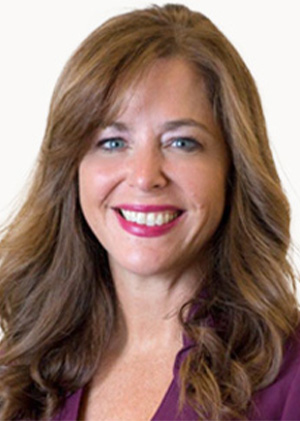Digital Debut
Meet the Board
Get to know your officers through these short interviews
INTERVIEWED BY SAHELY MUKERJI | OCTOBER 10, 2025
 |
|
|
Lisa Cooper
|
|
We are running a series of Q&As with ASCA’s Board of Directors to help our members get to know them better. Meet Lisa Cooper, Board member and chief executive officer of Santa Cruz Surgery Center in Santa Cruz, California.
Q: How did you get into the ASC space?
Lisa Cooper (LC): My first job at a surgery center was back in 1995, when I was hired as an operating room RN at a surgery center in Los Gatos, California. I had previously worked at a trauma center and community hospital, and had completed a postgraduate course in perioperative nursing. I was fortunate to have a supportive director of nursing who allowed me to cross-train into the recovery room, which opened the door to a more well-rounded ASC career. That experience sparked my interest in outpatient care, and I have been committed to the ASC setting ever since.
Quick Facts
Personal:
Age: 57
Place of birth: San Francisco Bay Area, California
Residence: Woodside, California
Family: Spouse, Quentin; and six children
Education: Bachelor of Arts in English, Santa Clara University; Bachelor of Science in Nursing, University of San Francisco; Postgraduate course in perioperative nursing, College of San Mateo
Career highlights: Over the past 25-plus years, I have served in nearly every role within the ASC setting—starting as an OR nurse and growing into leadership roles in operations, compliance and administration. I have helped build new centers from the ground up, partnered with physicians to develop ASC joint ventures, and successfully led organizations through regulatory surveys and strategic transitions. In addition to my current role at Santa Cruz Surgery Center, I provide business and clinical consulting to physician-owned centers. I am honored to advocate for the ASC community through my role on the ASCA Board.
First job: My first job was cleaning my father’s orthopedic clinic office as a teenager. That experience gave me early insight into the world of medicine and the importance of small, behind-the-scenes efforts in patient care.
One-word description of self: Resilient
Go-to motto or phrase: “We have only today. Let us begin.” —Mother Teresa
Your “superpower”: I have a knack for identifying patterns and root causes—and then translating them into practical improvements that make a real difference in operations, patient safety and staff morale.
One thing most people at work do not know about you: I recently have taken on a new hobby of bird watching. I find it both relaxing and humbling. What fascinates me most is how birds often communicate without sound—through flight patterns, small movements and presence. It is a quiet reminder that not all leadership or influence is loud; sometimes the most powerful signals are the ones we send by how we show up.
Q: What are your aspirations for ASCA?
LC: I would like to see ASCA continue to serve as a strong voice for surgery centers of all types—independent, hospital-affiliated, small and multispecialty—across the country. My goal is to help ASCA strengthen connections between independent centers, encourage mentorship among emerging leaders, and advocate for policies that protect access to high-quality, cost-effective surgical care.
Q: Who was a great mentor for you?
LC: During nursing school, I struggled a bit—having previously earned a bachelor’s degree in English, I found the clinical rotations and science requirements a steep learning curve. A professor, Dr. Marsha Fontyen, took me under her wing and encouraged me to leverage my writing background by coauthoring a research article with her. That opportunity gave me early confidence and taught me how diverse skill sets can add value to healthcare. I have carried that lesson with me throughout my career.
Q: What are you most proud of in your ASC work?
LC: I am proud of the longstanding partnerships I have built with dozens of physicians—helping them invest in and expand their practices through surgery centers. I take pride in creating centers that not only serve patients with high-quality care but also allow providers to practice in an environment designed for efficiency, safety and teamwork.
Q: If you could change one thing about the ASC community, what would it be?
LC: I would like to see continued evolution in how hospital systems and independent ASCs collaborate. We have seen progress, with some healthcare systems developing their own ASC divisions. I would like to build on that by encouraging more mutual respect and strategic partnerships. One of my goals in serving on the ASCA Board is to help independent centers connect with one another locally—fostering collaboration rather than competition.
Q: What excites you most about the future of ASCs?
LC: There is growing recognition—by patients, payers and policymakers—of the value that ASCs bring to healthcare. I am excited about innovations in outpatient surgical technology, the expanding range of procedures we can safely perform, and the ability of surgery centers to remain nimble and responsive to the needs of their communities.
Q: What legacy do you hope to leave in the ASC space?
LC: I hope to be remembered as someone who helped create high-functioning, patient-centered surgery centers and who empowered others—especially emerging leaders—to find their voice in this space. Whether through mentoring, strategic planning or building partnerships, I want my work to have supported long-term sustainability for ASCs and the professionals who run them.